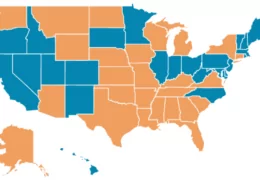Europe Disposable Vape Ban: Challenges and Progress
As disposable vapes continue to gain popularity across Europe, several countries are grappling with the challenges of implementing bans on these products. Following the United Kingdom’s lead, nations such as France, Belgium, Poland, Australia, and New Zealand have expressed their intention to prohibit the sale of disposable e-cigarettes. However, the path to enacting these bans has been marked by delays and obstacles.
Poland: Booming Sales and Delayed Legislation
In Poland, the sale of disposable vapes has skyrocketed in recent years. Data shows that sales reached 32 million units in 2022 and are expected to surpass 100 million by 2023. The Polish Market Monitoring Center estimates the market value of disposable e-cigarettes in Poland to be approximately PLN 2 billion (USD 500 million).
Polish Health Minister Izabela Leszczyna, who described the ban on disposable vapes as “urgent” in a television interview, recently admitted that the planned end of work on the legislation in March had been delayed due to other tasks. She assured that April would be the deadline for completing the bill.
Also read:
POLAND ANNOUNCES DISPOSABLE VAPE BAN
France: Parliamentary Agreement and September Implementation
On March 21, the French Parliament reached an agreement to ban disposable vapes. The ban, expected to take effect at the end of September 2024, prohibits the manufacture, sale, or free provision of these products. Violators will face a fine of 100,000 euros.
The bill was passed by the Parliament in December 2023, unanimously approved by the Senate in early February, and reached a consensus in the Joint Committee (CMP) composed of members of both houses of Congress on March 21. The government swiftly announced its decision to notify the European Commission, which has six months to certify the legislation before it takes effect in September.
Belgium: Taxation and European Commission Approval
Belgium has taken a two-pronged approach to addressing the disposable vape issue. Starting from January 1, 2024, the country will implement a new tax policy on e-cigarette oil, charging 15 euro cents per milliliter. A spokesman for the Ministry of Finance stated that the tax rate aligns with Germany’s and is likely to increase in the coming years.
Additionally, Belgian authorities have decided to ban the sale of disposable vapes from January 1, 2026. To comply with European law, specifically the Tobacco Products Directive (Directive 2014/40/EU), Belgium requires approval from the European Commission to implement its new regulations. The European Commission has now announced its support for Belgium’s bill, paving the way for the country to become the first in the EU to ban disposable e-cigarettes.
Calls for Action and Industry Response
In March 2023, seven major associations, including the European Association for Waste Disposal and Resource Utilization (FEAD) and the European Waste Energy Plant Association (CEWEP), jointly called for a ban on disposable e-cigarettes by the end of 2024. Their primary concern lies in the environmental impact of the lithium batteries contained in these products, which have caused fires due to improper disposal.
In response to the growing concerns, European Cargo Luxembourg International Airlines (Cargolux) announced that it and its subsidiary, Cargolux Italian Branch, would stop transporting disposable e-cigarettes. The company expressed hope that other logistics companies would follow suit, potentially impacting the supply and production chain of disposable e-cigarettes in Europe.
As the debate surrounding disposable vapes continues, it remains to be seen how effectively and swiftly European countries will implement their proposed bans. The obstacles faced by legislators and the response from industry stakeholders highlight the complexities of addressing this growing issue while balancing public health, environmental concerns, and economic interests.
- How to Choose Safe CBD for Dogs Without Guesswork - August 4, 2025
- Texas Senate Passes Revised THC Ban Bill (SB 5) - August 4, 2025
- Best Delta-8 THC Carts of 2025: Top 5 Vapes Reviewed - July 16, 2025









